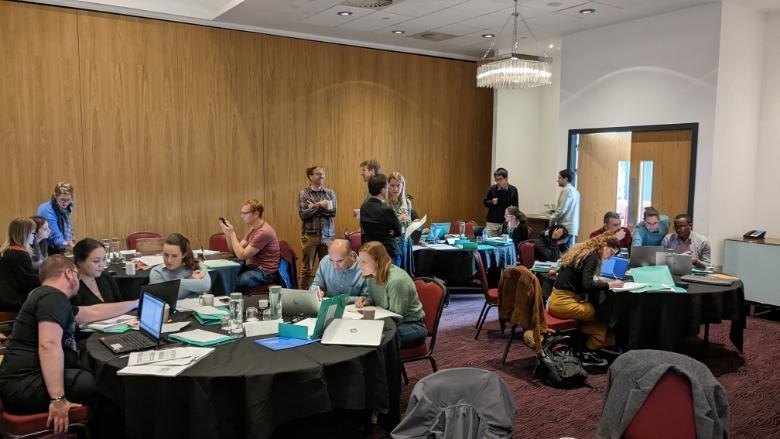Discrete Choice Experiment (DCE) studies in health and healthcare offer exciting opportunities but also present unique challenges.
Since 2003, the Health Economics Research Unit (HERU) has been at the forefront of teaching Discrete Choice Experiments (DCEs) in Health Economics.
More than 400 participants from diverse backgrounds and countries have attended our Discrete Choice Experiment in Health Economics course.
Our next course will be held in Aberdeen from 22nd to 26th September 2025. This course runs in collaboration with RTI Health Solutions. Book your spot now by signing up through this link: Using Discrete Choice Experiments in Health 2025.
The registration fee includes all course materials, a copy of the Using Discrete Choice Experiments to Value Health and Health Care book, four nights' B&B accommodation at the venue, all lunches, a networking drink's reception and a course dinner at a local restaurant.
Please note, our courses are often fully booked well in advance, so early registration is recommended.
This course runs every year in Aberdeen and, in collaboration with the O'Brien Institute for Public Health, University of Calgary, every two years in Banff, Canada. The next Canada course will be in 2026. More details will be posted when available. Watch this space!
About DCEs:
HERU has been teaching short courses on Discrete Choice Experiments (DCEs) since 2003. Researchers in HERU pioneered the application of DCEs in health economics and continue to develop the method. We explain more about DCEs in this short video:
About our Course:
This engaging 3-day course provides a comprehensive exploration of both the theoretical and practical aspects of using DCEs to elicit and apply preferences in health-related applications, while also offering a valuable opportunity to discuss and refine your own projects with expert guidance.
Drawing on real-world case studies from HERU’s researchers extensive experience, the course covers a wide range of applications, from understanding patient preferences for medical treatments to exploring healthcare professionals' job preferences and public attitudes towards care.
We want participants to leave the course both inspired and empowered to do their own DCEs. For this, we teach the whole process of designing a DCE: from study conception to interpretation of results considering the specific aspects of health.
We try to make the course as hands-on as possible. For this, we include:
- Taught sessions which focus on the theory behind DCEs.
- Group work sessions which provide participants with hands-on experience of each stage of a DCE project.
- Practical sessions which link the two together.
We use state-of-practice computer software to teach people how to design and analyse DCE data.
Whether you're new to DCEs or looking to deepen your expertise, this course will equip you with the knowledge and skills to tackle these complex issues with confidence.
Past courses have led to academic collaborations, PhD supervisions, completed research projects across the world and even a World Health Organisation User Guide.
Past participants have said:
“I really enjoyed the course! You created an excellent learning environment with really engaging teaching and everyone was so friendly and open to questions/discussion”
“The course was very well organized and highly informative. This is a great course for a beginner in DCEs. Having no prior knowledge of DCEs, I am fairly confident to conduct a DCE study with guidance from more experienced colleagues. Also, I can now critically read a DCE article and understand the methods and findings!”
“The course was a real treat - it was run excellently by Mandy, Verity and Luis with the presentations clear and well structured and has made me much more confident to run a DCE from start to finish".
“I've enjoyed the course (and Aberdeen) a lot, well done to the entire team for such professional organisation and delivery. I came here by recommendation from a colleague and will certainly recommend it to others”.
“Outstanding course. Thanks!! I hope you'll see a few publications from me (that are related to the course). That won't be a bad measure of success”.
“Thank you so much. The course was fantastic. The presenters' enthusiasm for the topic and willingness to discuss each attendee's study/data made attending even more valuable.”
“Thank you to all of the instructors and organizers for an incredibly well-run and very useful course! I will definitely be recommending this course to any colleagues interested in using DCEs in the future.”
You can read more about our Aberdeen and Canada courses in the sections below, and in the Frequently Asked Questions section.


In 2019, we published a HERU Blog post on the DCE courses that we ran that year in Aberdeen and in Canada - Reflections on HERU's 'Applying Discrete Choice Experiments in Health Economics' course.









